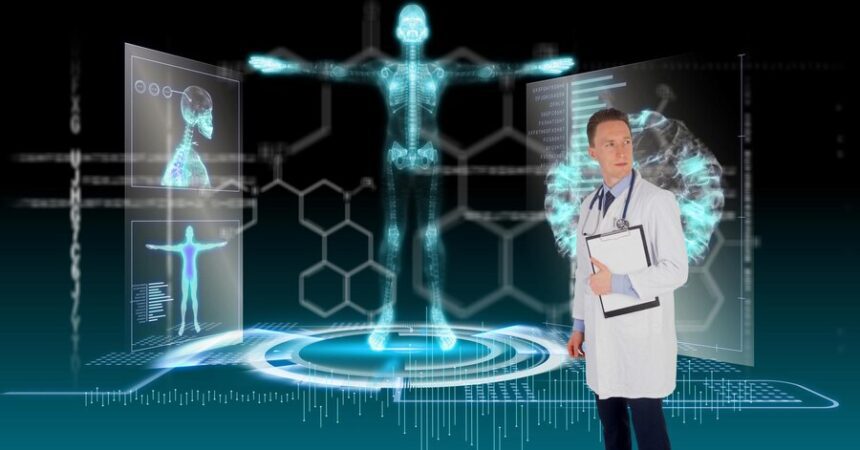Imagine a world where diseases are tackled before they even begin, where personalized medicine tailors treatments to your unique genetic code, and where regenerative therapies regrow damaged tissues. This isn’t science fiction, it’s the not-so-distant future of biotechnology tech, where cutting-edge technologies are already transforming the landscape of healthcare.
Genetic Revolution: Editing the Blueprint of Life
The human genome, our blueprint of life, is no longer a mystery. Powerful tools like CRISPR-Cas9 allow scientists to edit genes with incredible precision, offering the potential to cure genetic diseases once considered untreatable. Imagine editing a faulty gene responsible for cystic fibrosis, sickle cell anemia, or even certain cancers. The possibilities are truly mind-boggling.
Personalized Medicine: Tailor-Made Treatments for You
One-size-fits-all medicine is becoming a relic of the past. Thanks to advancements in genomics and artificial intelligence, healthcare is moving towards a personalized approach with biotechnology tech. By analyzing your individual genetic makeup, environment, and lifestyle, doctors can prescribe treatments that are more effective and have fewer side effects, specifically for you.
Beyond Pills and Potions: Bioprinting Organs and Tissues
Imagine needing a new liver or kidney and simply having it printed to order, like a 3D-printed object. While it might sound like something out of a movie, bioprinting is rapidly becoming a reality. Scientists are using stem cells and biocompatible materials to create tissues and even entire organs that could potentially replace damaged ones, revolutionizing the field of organ transplantation.
Microbes to the Rescue: Harnessing the Power of the Microbiome
Our gut microbiome, a vast ecosystem of trillions of bacteria, plays a crucial role in our health, influencing everything from digestion to mood and immunity. By understanding and manipulating the microbiome using probiotics and prebiotics, scientists are exploring ways to treat conditions like inflammatory bowel disease, obesity, and even mental health disorders with biotechnology tech.
AI and Big Data: The Doctors of the Future
Imagine a doctor who can analyze your entire medical history, including genetic data, real-time health monitoring, and environmental factors, to predict and prevent diseases before they even occur. This is the promise of artificial intelligence and big data in healthcare. By implementing bioinformatics, AI algorithms can identify patterns and make personalized predictions, paving the way for a future of proactive and preventative medicine.
Ethical Considerations: Navigating the New Frontier
While the potential of these technologies is undeniable, ethical considerations must be carefully addressed. Issues like gene editing germline modifications, data privacy in personalized medicine, and accessibility of advanced treatments require open dialogue and responsible development.
The future of biotechnology tech is brimming with possibilities, offering hope for a healthier, longer, and more personalized future. As these technologies continue to evolve, it’s crucial to embrace the potential while navigating the ethical complexities with responsibility and foresight. So, stay informed, engage in the conversation, and get ready to witness the dawn of a new era in healthcare, where the boundaries between science and fiction start to blur, and the human body itself becomes a platform for innovation and transformation.
Remember, the journey toward a better future is paved with both excitement and challenges. Let’s embrace the opportunities while ensuring that these advancements benefit everyone, equitably and ethically. Because after all, a healthier future is a future for all.
Conclusion
From editing life’s blueprint with CRISPR to printing organs on demand, the biotechnology tech revolution is redefining health. AI doctors predict and pre-empt illness, while personalized medicine tailors treatments to your unique code. But ethical considerations dance with these marvels. Navigating this brave new world demands open dialogue and responsible development. Ultimately, embracing the potential while ensuring equitable access holds the key to a future where illness takes a backseat to human ingenuity and a healthier tomorrow for all.







